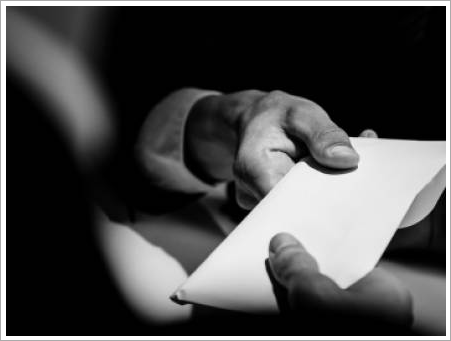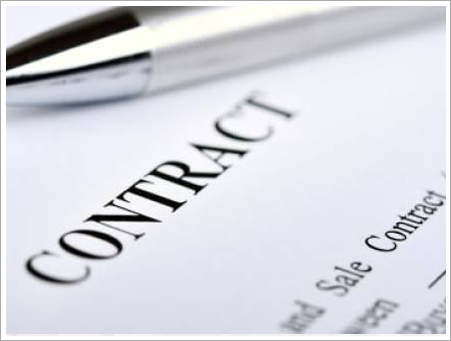Recent Blog Posts
If your business has been hit with a breach of contract lawsuit, you may be concerned about looming litigation, particularly the financial and resource costs, which can be significant. However, not every breach of contract claim will succeed. Illinois law provides several defenses to breach of contract claims.
Understanding these defenses is critical, whether you are being sued, negotiating a settlement to the dispute, or trying to avoid litigation altogether. An experienced Chicago, IL commercial litigation
If your business has been hit with a breach of contract lawsuit, you may be concerned about looming litigation, particularly the financial and resource costs, which can be significant. However, not every breach of contract claim will succeed. Illinois law provides several defenses to breach of contract claims.
Understanding these defenses is critical, whether you are being sued, negotiating a settlement to the dispute, or trying to avoid litigation altogether. An experienced Chicago, IL commercial litigation
When legal issues arise in the course of doing business, they may end up resulting in a commercial litigation lawsuit. This is when you need a tough, skilled, and experienced commercial litigator by your side, to provide advice and represent you in court. Commercial litigation attorneys not only know the law but also understand the impact commercial disputes can have on a business. It is not simply a matter of applying the law to the …
When legal issues arise in the course of doing business, they may end up resulting in a commercial litigation lawsuit. This is when you need a tough, skilled, and experienced commercial litigator by your side, to provide advice and represent you in court. Commercial litigation attorneys not only know the law but also understand the impact commercial disputes can have on a business. It is not simply a matter of applying the law to the …
No one enters a commercial lease agreement hoping that it will fail. Nevertheless, understanding the laws that apply to evictions is a necessary part of being a commercial property landlord in Illinois. To ensure that you have reasonable grounds for eviction and follow the law when invoking your right to evict, you should consider seeking the help of an experienced Chicago, IL commercial eviction attorney. Several factors can complicate the process, and tenants have the right …
No one enters a commercial lease agreement hoping that it will fail. Nevertheless, understanding the laws that apply to evictions is a necessary part of being a commercial property landlord in Illinois. To ensure that you have reasonable grounds for eviction and follow the law when invoking your right to evict, you should consider seeking the help of an experienced Chicago, IL commercial eviction attorney. Several factors can complicate the process, and tenants have the right …
When a debtor has defaulted on debt and collections efforts do not yield results, one significant asset recovery option that creditors can use to get their assets back is replevin. When asking for the assets back or sending a demand letter does not work, replevin can be a useful and significant tool in the commercial debt collection toolbox when personal property such as vehicles, furniture, or electronics are at stake. A Cook County, IL asset …
When a debtor has defaulted on debt and collections efforts do not yield results, one significant asset recovery option that creditors can use to get their assets back is replevin. When asking for the assets back or sending a demand letter does not work, replevin can be a useful and significant tool in the commercial debt collection toolbox when personal property such as vehicles, furniture, or electronics are at stake. A Cook County, IL asset …
Disputes are a natural part of doing business. Whether the dispute arises from a genuine misunderstanding or disagreement or from a deliberate action, it can lead to serious financial and reputational issues.
Commercial litigation is the recourse that businesses have to address these disputes, either in court or prior to court but with the threat of litigation hanging over the dispute. Commercial litigation can also, in some cases, be used as a business tactic to attempt …
Disputes are a natural part of doing business. Whether the dispute arises from a genuine misunderstanding or disagreement or from a deliberate action, it can lead to serious financial and reputational issues.
Commercial litigation is the recourse that businesses have to address these disputes, either in court or prior to court but with the threat of litigation hanging over the dispute. Commercial litigation can also, in some cases, be used as a business tactic to attempt …
Businesses depend on their clients paying for goods and services in a timely fashion. Yet sometimes clients do not pay businesses for goods and services provided. Professionals such as engineers, consultants, lawyers, and accountants face the same issues. However, professionals face unique challenges when collecting unpaid fees. Much of a professional’s business depends on building and maintaining relationships and a solid reputation.
Additionally, there may be ethical considerations governing how a professional may collect
Businesses depend on their clients paying for goods and services in a timely fashion. Yet sometimes clients do not pay businesses for goods and services provided. Professionals such as engineers, consultants, lawyers, and accountants face the same issues. However, professionals face unique challenges when collecting unpaid fees. Much of a professional’s business depends on building and maintaining relationships and a solid reputation.
Additionally, there may be ethical considerations governing how a professional may collect
If you are involved in a business dispute, you may be considering a lawsuit against the party that is harming your interests. Depending on the facts of your case, you may bring a claim for unjust enrichment to recover against a party who unjustly benefited at your expense. A Chicago, IL commercial litigation attorney can provide advice on whether you may file an unjust enrichment claim in your commercial dispute.
How Do You Make a Claim …
If you are involved in a business dispute, you may be considering a lawsuit against the party that is harming your interests. Depending on the facts of your case, you may bring a claim for unjust enrichment to recover against a party who unjustly benefited at your expense. A Chicago, IL commercial litigation attorney can provide advice on whether you may file an unjust enrichment claim in your commercial dispute.
How Do You Make a Claim …
Businesses and individuals with significant financial difficulties may file for Chapter 11 bankruptcy protection. A creditor faced with a debtor company that has filed for Chapter 11 bankruptcy should consider consulting with an attorney who represents creditors to ensure that they are able to recover their assets and to familiarize themselves with the process.
Chapter 11 Bankruptcy Explained
Chapter 11 bankruptcy allows a debtor to reorganize with no debt limits. For this reason, and because …
Businesses and individuals with significant financial difficulties may file for Chapter 11 bankruptcy protection. A creditor faced with a debtor company that has filed for Chapter 11 bankruptcy should consider consulting with an attorney who represents creditors to ensure that they are able to recover their assets and to familiarize themselves with the process.
Chapter 11 Bankruptcy Explained
Chapter 11 bankruptcy allows a debtor to reorganize with no debt limits. For this reason, and because …
An important part of running a business is forging strong relationships with employees, suppliers, vendors, and partners. However, when businesses get competitive, they can sometimes interfere with those relationships. When a person or company inappropriately disrupts someone else’s business relationship with a third party it is called tortious interference. If that interference causes financial harm, the affected business may bring a legal claim against the interferer, referred to as the defendant.
There are two types of …
An important part of running a business is forging strong relationships with employees, suppliers, vendors, and partners. However, when businesses get competitive, they can sometimes interfere with those relationships. When a person or company inappropriately disrupts someone else’s business relationship with a third party it is called tortious interference. If that interference causes financial harm, the affected business may bring a legal claim against the interferer, referred to as the defendant.
There are two types of …
Commercial debt collection is a necessary task for many businesses. Companies often conduct transactions on credit terms, providing goods or services for payment at a later date. When that date comes, the creditor is entitled to collect the money it is owed. However, debt collection can be a challenging process and can backfire on the creditor if it fails to take certain steps. Mistakes made while trying to collect commercial debt may result in lost …
Commercial debt collection is a necessary task for many businesses. Companies often conduct transactions on credit terms, providing goods or services for payment at a later date. When that date comes, the creditor is entitled to collect the money it is owed. However, debt collection can be a challenging process and can backfire on the creditor if it fails to take certain steps. Mistakes made while trying to collect commercial debt may result in lost …
Putting Your
Business First
Business First
To Learn more about our services or schedule an appointment please call 312-922-3030.
To Learn more about our services or schedule an appointment please call 312-922-3030.











